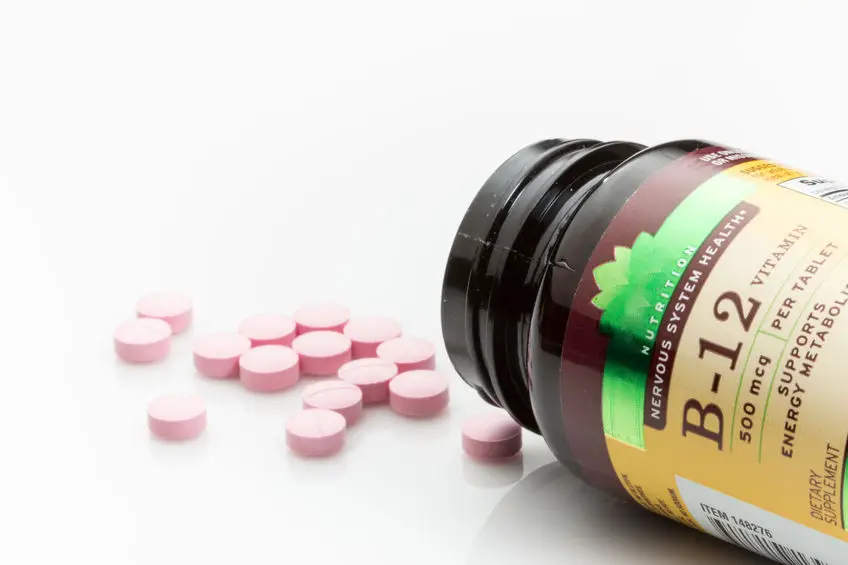
Vitamin B12 and Cyanide: Understanding the Connection and Potential Risks
The relationship between vitamin B12 and cyanide is a complex one, involving biochemical pathways and potential health implications. While vitamin B12 is essential for various bodily functions, cyanide is a toxic substance. This article aims to clarify the connection between these two compounds, exploring how vitamin B12 can sometimes be used in the treatment of cyanide poisoning and what risks, if any, are associated with this interaction. Understanding this relationship is crucial for healthcare professionals and anyone interested in nutritional science and toxicology.
What is Vitamin B12?
Vitamin B12, also known as cobalamin, is a water-soluble vitamin vital for nerve function, DNA synthesis, and the formation of red blood cells. It cannot be produced by the human body and must be obtained through diet or supplements. Good sources of vitamin B12 include meat, poultry, fish, eggs, and dairy products. Vegans and vegetarians often require supplementation to maintain adequate levels.
Deficiency in vitamin B12 can lead to various health problems, including anemia, fatigue, nerve damage, and cognitive impairment. Early detection and treatment of vitamin B12 deficiency are essential to prevent irreversible damage.
What is Cyanide?
Cyanide is a rapidly acting, potentially deadly chemical that interferes with the body’s ability to use oxygen. It can be found in various forms, including hydrogen cyanide gas and cyanide salts. Exposure to cyanide can occur through inhalation, ingestion, or skin absorption. Sources of cyanide include industrial processes, certain plants (such as apricot kernels and cassava), and smoke from fires.
Cyanide poisoning can cause a range of symptoms, including rapid breathing, dizziness, weakness, headache, and seizures. In severe cases, it can lead to loss of consciousness, cardiac arrest, and death. Immediate medical intervention is crucial in cases of cyanide poisoning.
The Role of Vitamin B12 in Cyanide Detoxification
One of the interesting aspects of the relationship between vitamin B12 and cyanide is the use of a specific form of vitamin B12, hydroxocobalamin, as an antidote for cyanide poisoning. Hydroxocobalamin has a strong affinity for cyanide and reacts with it to form cyanocobalamin, a non-toxic form of vitamin B12 that can be safely excreted from the body.
This detoxification process is based on the chemical reaction where the cobalt atom in hydroxocobalamin binds to the cyanide ion, effectively neutralizing its toxic effects. The resulting cyanocobalamin is then eliminated through the kidneys.
How Hydroxocobalamin Works as an Antidote
Hydroxocobalamin works by providing the body with an alternative binding site for cyanide. When cyanide enters the bloodstream, it inhibits cytochrome c oxidase, an enzyme essential for cellular respiration. This inhibition prevents cells from using oxygen, leading to rapid energy depletion and cell death. By administering hydroxocobalamin, the cyanide is preferentially drawn to the cobalt atom in the vitamin B12 molecule, forming cyanocobalamin and allowing cytochrome c oxidase to function normally again.
The effectiveness of hydroxocobalamin as a cyanide antidote depends on several factors, including the dose of hydroxocobalamin administered, the severity of the cyanide poisoning, and the time elapsed since exposure. Early administration of hydroxocobalamin is crucial for maximizing its therapeutic benefits. [See also: Symptoms of Cyanide Poisoning]
Potential Risks and Side Effects
While hydroxocobalamin is generally considered safe, it can cause some side effects. Common side effects include temporary red discoloration of the skin and urine. This is due to the color of the hydroxocobalamin itself and is not harmful. Other possible side effects include nausea, headache, and injection site reactions.
In rare cases, more serious side effects can occur, such as allergic reactions. Healthcare providers should monitor patients receiving hydroxocobalamin for any signs of adverse reactions and provide appropriate supportive care. It’s important to note that the benefits of using hydroxocobalamin to treat cyanide poisoning typically outweigh the potential risks, given the life-threatening nature of cyanide toxicity.
Vitamin B12 Supplements and Cyanide Exposure
It’s important to distinguish between the use of hydroxocobalamin as a cyanide antidote and the regular intake of vitamin B12 supplements. Taking vitamin B12 supplements does not protect against cyanide poisoning, nor does it increase the risk of cyanide toxicity. Vitamin B12 supplements are intended to address vitamin B12 deficiency and support overall health.
However, individuals who are exposed to cyanide through occupational hazards or other means should be aware of the potential benefits of hydroxocobalamin as a treatment option. Prompt medical attention is crucial in such cases, and healthcare providers can determine the appropriate course of action based on the individual’s specific circumstances.
Dietary Considerations and Cyanide
Some foods naturally contain compounds that can be metabolized into cyanide in the body. These compounds, known as cyanogenic glycosides, are found in foods such as cassava, apricot kernels, and almonds. While the amount of cyanide produced from these foods is generally low and not harmful, consuming large quantities of these foods, especially if improperly prepared, can potentially lead to cyanide toxicity.
Proper food preparation techniques, such as soaking and cooking cassava, can help reduce the levels of cyanogenic glycosides and minimize the risk of cyanide exposure. It’s also important to consume these foods in moderation as part of a balanced diet. [See also: Foods That Contain Cyanide]
Conclusion
The relationship between vitamin B12 and cyanide is multifaceted, with vitamin B12 playing a crucial role in the detoxification of cyanide through the use of hydroxocobalamin. While vitamin B12 supplements do not protect against cyanide poisoning, hydroxocobalamin is an effective antidote for cyanide toxicity. Understanding this connection is essential for healthcare professionals and anyone interested in the complex interactions between nutrients and toxins in the body.
It is crucial to remember that cyanide poisoning is a medical emergency that requires immediate attention. If you suspect cyanide exposure, seek medical help immediately. This article provides general information and should not be considered a substitute for professional medical advice.
